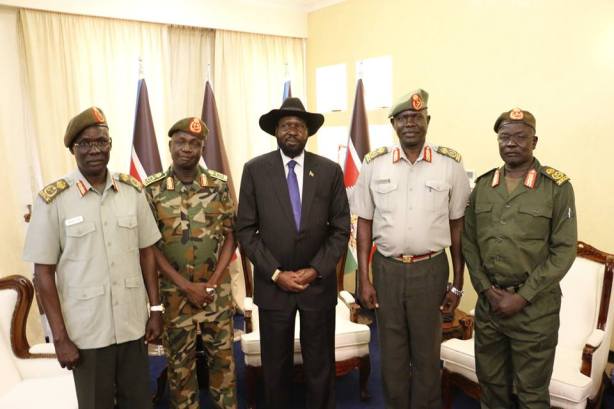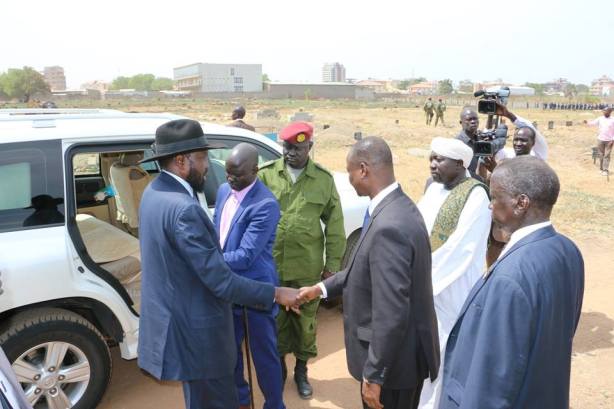
Date: Monday, May 22nd, 2017
To: H.E. Salva Kiir Mayardit,
President of the Republic of South Sudan and
Commander in Chief of Sudan People’s Liberation Army (SPLA)
CC: Transitional National Legislative Assembly (TNLA)
CC: Transitional Legislative Assemblies of Aweil, Aweil East, and Lol States
Ref: The Position Statement of Greater Mading Aweil Diaspora Communities, USA, Canada & Australia on the Sacking of General Paul Malong Awan
ENCOURAGED by the conviction and resilience of our community in the face of uncertain future in this trying times in our beloved country,
RECALLING the contribution of our community throughout the liberation history to usher in South Sudan’s statehood on 9th July, 2011,
MINDFUL of the solemn obligation to making sure South Sudan’s statehood is protected and upheld,
COGNIZANT of the shared and selfless contributions for the birth of South Sudan among all ethnic groups, large and small, rich or poor and the diversity we must cherish,
BELIEVING in the shared desire to crave for fair treatment of people irrespective of their social, economic and political weights across the country,
PROUD of our community’s important place in collective construction of a nation united in the spirit of hard work, collaboration and shared vision,
HUMBLED by the opportunity accorded to members of our community in helping defend and protect the territorial integrity of the Republic of South Sudan with undivided loyalty to the leadership and the party,
PLEASED with the achievements and commitments of our cadres such as General Paul Malong Awan and his comrades in rising to the occasion for the cause they can do best: fight for the rights of all,
AWARE of President Salva Kiir Mayardit’s constitutional prerogative to appoint and relieve any competent citizen to and from national office,
THANKFUL for the show of leadership by the Western and Eastern Lakes Governments and communities in containing the unfortunate situation,
WE, the Greater Mading Aweil Diaspora Communities in USA, Canada and Australia, hereby make the following statement in relations to the above stated issue:
(more…)
























The exhausted war veterans over-rewarded themselves, then invoked a quagmire!
Posted: May 31, 2017 by PaanLuel Wël Media Ltd. in Columnists, Commentary, Contributing Writers, Opinion Articles, Opinion Writers, Sunday de JohnBy Sunday de John, New Delhi, India
Awet Akot, Wani Igga, President Kiir, Kuol Manyang and Ajonga Mawut, the exhausted veterans of the SPLM/A war of liberation
May 31, 2017 (SSB) — Have you ever been part of a war as exhausting as a guerrilla warfare? Our veterans have been the central cogs of such exhausting warfare. Dr. John Garang de Mabior, Kerubino Kuanyin Bol, William Nyuon Bany, Arok Thon Arok and of course, Salva Kiir Mayardit, James Wani Igga, Kuol Manyang Juuk and Daniel Awet Akot among others were the central cogs. Too, their other senior colleagues, rank and file, have been integral.
The war raged on for over two decades, veterans dragged on persistently with a lot of hurdles to overcome. They fought willingly despite pervasive perseverance they had to go through.
As witnesses of dismal atrocities committed against their loved ones, kin and kiths by the ruthless successive Khartoum regimes, the then bewildered youngsters now turned veterans accepted to fight for the liberty of the oppressed despite lack of pay. They were volunteers who sacrificed to fight for the freedom of their maimed fellow countrymen and countrywomen. In short they were fighting for liberty. Liberty of South Sudanese and other marginalised Sudanese.
(more…)
Share this: